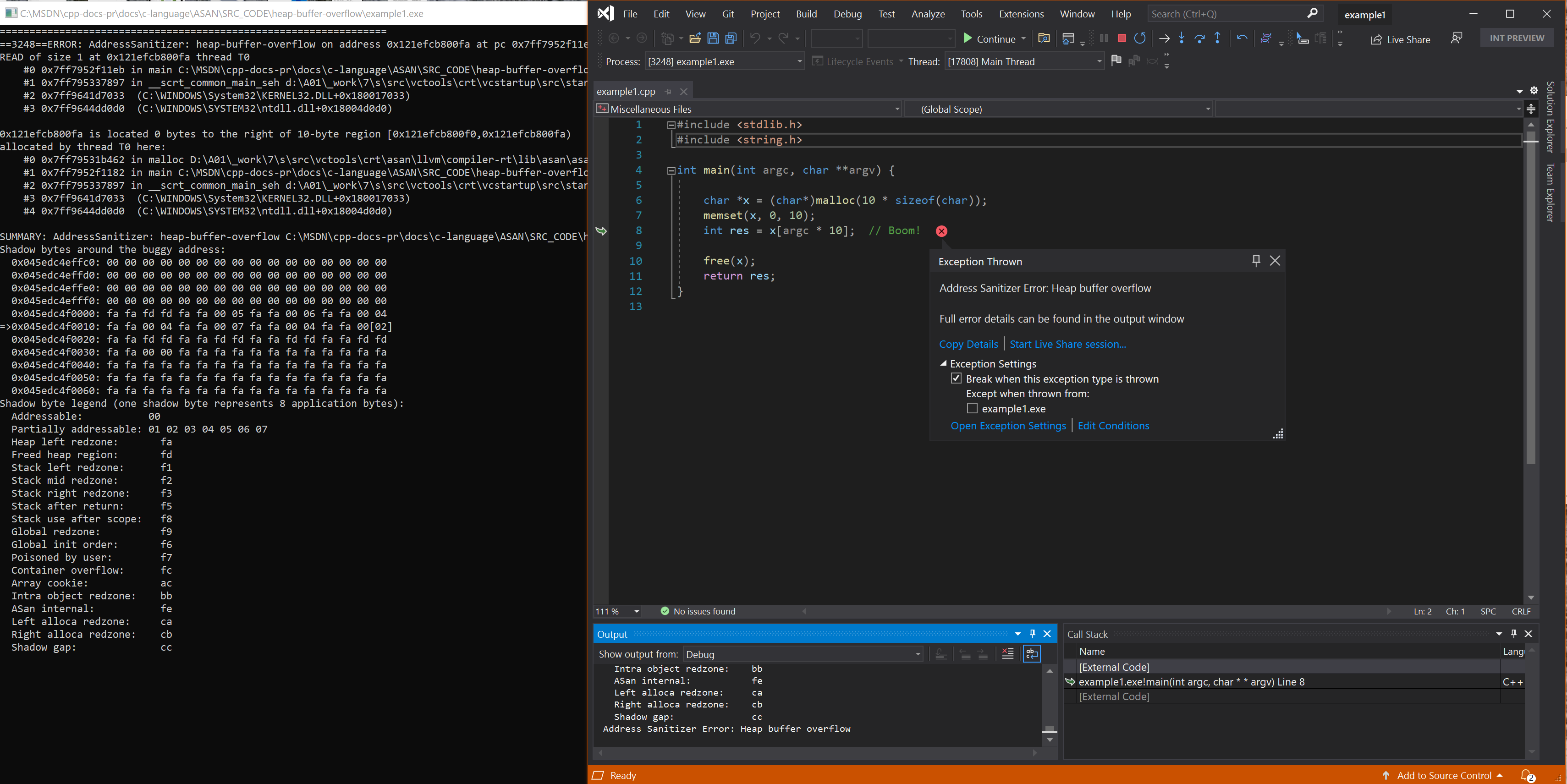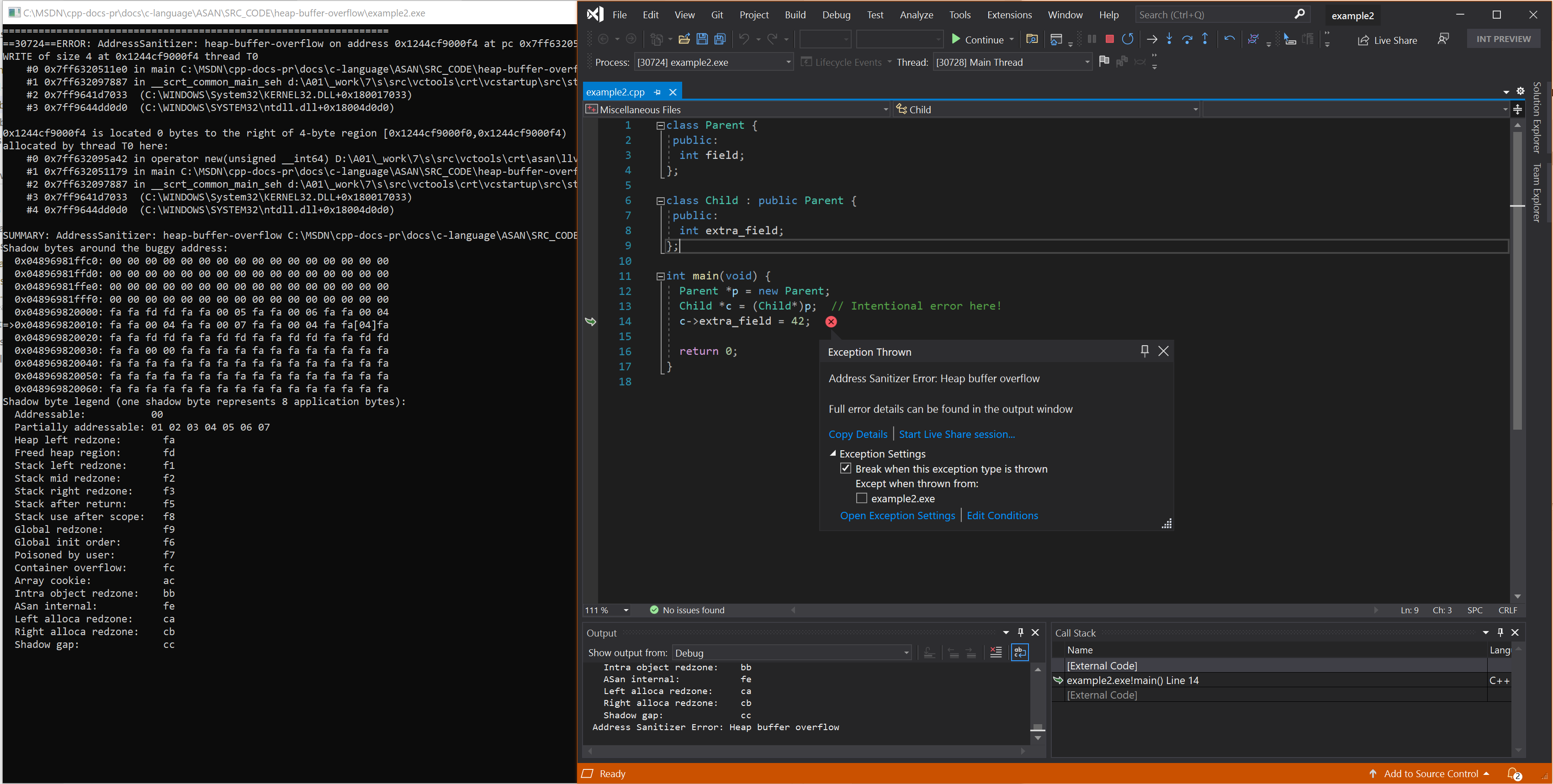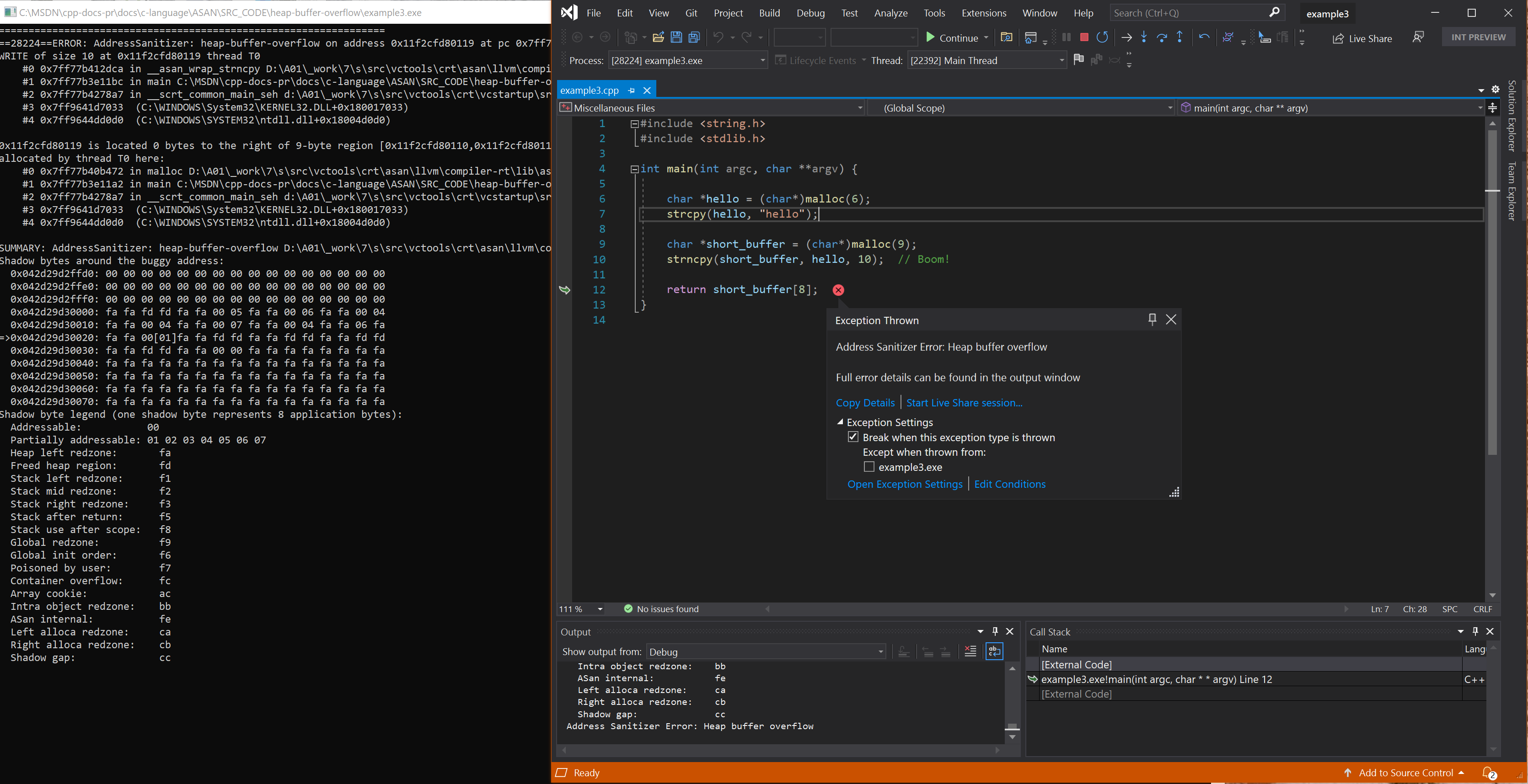エラー: heap-buffer-overflow
Address Sanitizer のエラー: ヒープ バッファー オーバーフロー
この例では、ヒープに割り当てられたオブジェクトの境界の外部でメモリ アクセスが発生したとき発生するエラーを示します。
例 - クラシック ヒープ バッファー オーバーフロー
// example1.cpp
// heap-buffer-overflow error
#include <stdlib.h>
#include <string.h>
int main(int argc, char **argv) {
char *x = (char*)malloc(10 * sizeof(char));
memset(x, 0, 10);
int res = x[argc * 10]; // Boom!
free(x);
return res;
}
この例をビルドしてテストするには、Visual Studio 2019 バージョン 16.9 以降の開発者コマンド プロンプトで次のコマンドを実行します。
cl example1.cpp /fsanitize=address /Zi
devenv /debugexe example1.exe
結果のエラー

例 - 不適切なダウンキャスト
// example2.cpp
// heap-buffer-overflow error
class Parent {
public:
int field;
};
class Child : public Parent {
public:
int extra_field;
};
int main(void) {
Parent *p = new Parent;
Child *c = (Child*)p; // Intentional error here!
c->extra_field = 42;
return 0;
}
この例をビルドしてテストするには、Visual Studio 2019 バージョン 16.9 以降の開発者コマンド プロンプトで次のコマンドを実行します。
cl example2.cpp /fsanitize=address /Zi
devenv /debugexe example2.exe
結果のエラー - ダウン キャストが不適切です

例 - ヒープへの strncpy
// example3.cpp
// heap-buffer-overflow error
#include <string.h>
#include <stdlib.h>
int main(int argc, char **argv) {
char *hello = (char*)malloc(6);
strcpy(hello, "hello");
char *short_buffer = (char*)malloc(9);
strncpy(short_buffer, hello, 10); // Boom!
return short_buffer[8];
}
この例をビルドしてテストするには、Visual Studio 2019 バージョン 16.9 以降の開発者コマンド プロンプトで次のコマンドを実行します。
cl example3.cpp /fsanitize=address /Zi
devenv /debugexe example3.exe
結果のエラー - ヒープへの strncpy

関連項目
AddressSanitizer の概要
AddressSanitizer の既知の問題
AddressSanitizer のビルドと言語リファレンス
AddressSanitizer ランタイム リファレンス
AddressSanitizer シャドウ バイト
AddressSanitizer クラウドまたは分散テスト
AddressSanitizer デバッガーの統合
AddressSanitizer エラーの例
フィードバック
以下は間もなく提供いたします。2024 年を通じて、コンテンツのフィードバック メカニズムとして GitHub の issue を段階的に廃止し、新しいフィードバック システムに置き換えます。 詳細については、「https://aka.ms/ContentUserFeedback」を参照してください。
フィードバックの送信と表示